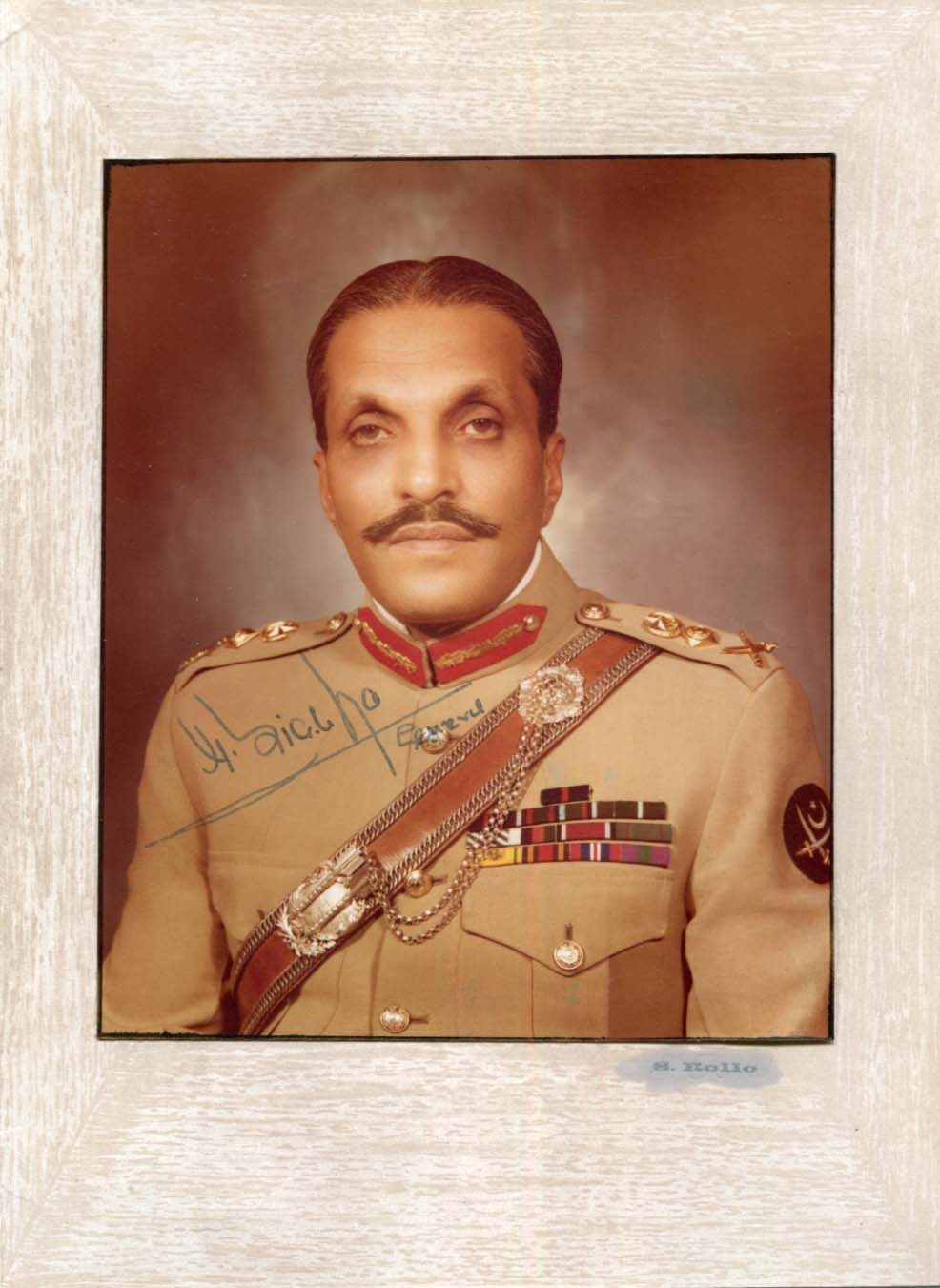描述
有关该人的更多信息
Profession:
(1924-1988) sixth President of Pakistan from 1978 until his death in 1988
Year of Birth: 1924
Muhammad Zia-ul-Haq was the sixth president of Pakistan who served from 1977 until his death in 1988. He was born on 12 August 1924 in Jhelum, British India, and was educated in a military academy in India. He joined the British Indian Army in 1943 and served in World War II, rising to the rank of Major. After the partition of India in 1947, Zia joined the newly-created Pakistan Army and fought in the Indo-Pakistani War of 1965, rising to the rank of Lieutenant General.
Zia rose to power in 1977 when he overthrew the democratically-elected government of Zulfikar Ali Bhutto and declared martial law. He implemented several Islamic reforms, including the controversial Hudood Ordinances which imposed strict Islamic punishments such as stoning and amputation for certain crimes. He also encouraged religious education, making it compulsory in all public schools. He also sought to strengthen the military, increasing their budget and training them in modern warfare.
Under Zia’s rule, Pakistan became a major recipient of US military and economic aid, which it used to support the Mujahedeen in the Afghan-Soviet War. His regime also supported the Taliban in Afghanistan, and sought to expand Pakistan’s influence in Central Asia. Zia also sought to improve relations with Pakistan’s neighbors, including India and Afghanistan.
Zia also sought to improve Pakistan’s economy, introducing a number of economic reforms such as encouraging foreign investment and privatization of state-owned enterprises. However, his economic policies were largely unsuccessful, and the country experienced high inflation and economic stagnation. His regime was also accused of widespread human rights abuses, including the torture and summary executions of political opponents.
In 1988, Zia was killed in an airplane crash. The cause of the crash was never determined, and some have speculated that it was the result of sabotage. Zia’s death marked the end of his 11-year rule, and the beginning of a period of civilian rule in Pakistan. His legacy is still debated in Pakistan today, with some viewing him as a hero who modernized the country and improved its international standing, while others view him as a tyrannical dictator who violated human rights.
Muhammad Zia-ul-Haq’s rule has left a lasting legacy on Pakistan, and he remains one of the most influential figures in the country’s history. Despite his controversial policies, he is widely remembered for his efforts to modernize the country’s military and improve its international standing. His death tragically marked the end of his rule, but his legacy will continue to influence Pakistan for years to come.
真实性证书
我们所有的作品均以真实性证书出售。如果一件作品错误或不喜欢亲笔签名,那么您一生就会拿回钱。
付款和安全
您的付款信息已安全处理。我们无法存储信用卡详细信息,也无法访问您的信用卡信息。

